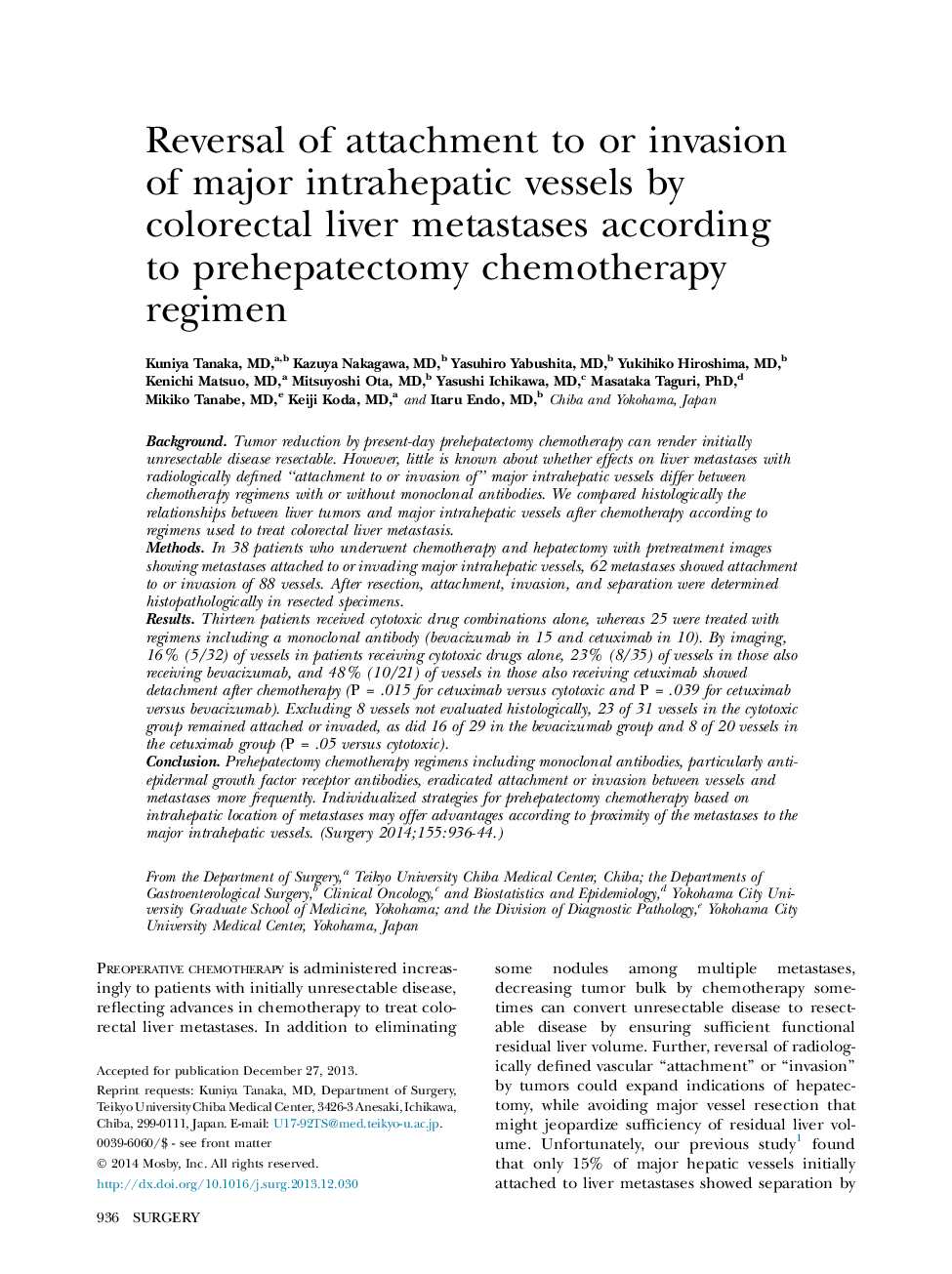| کد مقاله | کد نشریه | سال انتشار | مقاله انگلیسی | نسخه تمام متن |
|---|---|---|---|---|
| 4306551 | 1289223 | 2014 | 9 صفحه PDF | دانلود رایگان |
BackgroundTumor reduction by present-day prehepatectomy chemotherapy can render initially unresectable disease resectable. However, little is known about whether effects on liver metastases with radiologically defined “attachment to or invasion of” major intrahepatic vessels differ between chemotherapy regimens with or without monoclonal antibodies. We compared histologically the relationships between liver tumors and major intrahepatic vessels after chemotherapy according to regimens used to treat colorectal liver metastasis.MethodsIn 38 patients who underwent chemotherapy and hepatectomy with pretreatment images showing metastases attached to or invading major intrahepatic vessels, 62 metastases showed attachment to or invasion of 88 vessels. After resection, attachment, invasion, and separation were determined histopathologically in resected specimens.ResultsThirteen patients received cytotoxic drug combinations alone, whereas 25 were treated with regimens including a monoclonal antibody (bevacizumab in 15 and cetuximab in 10). By imaging, 16% (5/32) of vessels in patients receiving cytotoxic drugs alone, 23% (8/35) of vessels in those also receiving bevacizumab, and 48% (10/21) of vessels in those also receiving cetuximab showed detachment after chemotherapy (P = .015 for cetuximab versus cytotoxic and P = .039 for cetuximab versus bevacizumab). Excluding 8 vessels not evaluated histologically, 23 of 31 vessels in the cytotoxic group remained attached or invaded, as did 16 of 29 in the bevacizumab group and 8 of 20 vessels in the cetuximab group (P = .05 versus cytotoxic).ConclusionPrehepatectomy chemotherapy regimens including monoclonal antibodies, particularly anti-epidermal growth factor receptor antibodies, eradicated attachment or invasion between vessels and metastases more frequently. Individualized strategies for prehepatectomy chemotherapy based on intrahepatic location of metastases may offer advantages according to proximity of the metastases to the major intrahepatic vessels.
Journal: Surgery - Volume 155, Issue 5, May 2014, Pages 936–944
